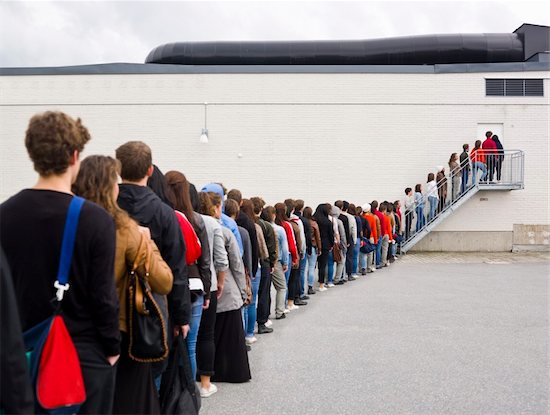Emotions and Investment Decisions
Every investor should be aware that their investment decisions have both a financial and emotional consequence. Excitement and disappointment, pride and embarrassment and sometimes the feeling of regret can potentially accompany every investment choice. Your emotions are one of the strongest influences affecting your investment decisions. Emotions can over-ride important factors in the investment decision process like rational reasoning, common-sense and logic. Your fears and emotional desires can lead you to make irrational, illogical investment choices and they can prevent you from making smart decisions.

A few of the common emotions that investors are subject to include the following, each of which is discussed below:
- Fear of loss
- Greed
- Risk aversion
- Fear of regret
- Bandwagon effect
Fear of loss
Every investor has a fear of losing money. Some investors have a really bad fear, while others are less fearful. The influence of this fear of loss on the investment decision will vary from investor to investor.

A number of psychological studies have demonstrated that in general investors hate losing money twice as much as they enjoy making money. This relationship will lead investors to refuse purchasing an investment if the probability of losing a dollar equals the probability of making a dollar. In order for our greed to override our fear of loss, the promised returns must be greater than twice the potential losses. (For an example of this phenomena, see our discussion on Greed below.)
The people marketing investments understand our fear of loss just as those who market consumer goods, and they have often been able to overcome our fear of loss by framing the purchase decision within a favourable context.
Example: When buying a product, would you prefer to receive a discount or avoid a surcharge? Would you prefer to have a GST credit or a 5.0% discount? It may seem minor, but most feel better receiving a GST credit. Another study examined consumers’ reaction to the price changes in insurance policies. The study found that a price increase motivated twice as many people to switch when compared with equal reductions in prices.
Investors would rather purchase an investment after it has declined in price and the investment industry will market the decline in price as a Discount, Cheap or Undervalued. This framing of the investment’s price requires the investor to accept some arbitrary price as the investment’s true or real reference value. By framing the declining price in this way, investors are much more likely to step-up and buy.
Note: Framing the price reduction as an opportunity enables us to overcome our fear of loss from the purchase. More often than not, our fear of loss is overridden by framing the decision with an element of greed.
Greed
Have you every purchased a lottery ticket? Have you ever gambled at a casino? Have you ever bought a fly-er of a stock? All of these purchases carry a very high probability that you will lose your money. So if you knew your chances of losing your money were higher than winning, why did you buy?

Simply, at the time you could not pass on the opportunity to win big! You were able to reason and rationalize the risk of losing your money sufficiently to give yourself permission to buy, which basically amounts to throwing away your money. Your greed over came your fear of losing.
One of the amazing aspects of greed and our fear of loss is that they negate any logical thought to an outcome’s probability. They over ride the chances for success, or the big win.
Example: Assume you are offered the opportunity to bet on the outcome of a coin toss. You are asked to reach into your pocket and place $100 on the table. When the coin is tossed, if it lands with heads, you lose the $100, and if it lands with tails you win nothing. Would you take the bet? Certainly not.
What if you are told, if the coin lands with heads, you lose the $100, but if it lands with tails you win $100? Would you take the bet? Probably not. What dollar amount would you need to win before you would take the bet – $150, $200, $300?
Studies have shown the majority would accept the bet if their potential winnings were between $200 and $250. They needed a disproportionate potential reward before accepting the bet. This demonstrates the point at which their greed was able to override their fear of loss. This is evident because the probabilities of a successful outcome never improved. The probability of loss is the same in each arrangement – 50/50!
Remember: Our greed helps us to rationalize and override our fears and enabling us to ignore logic and common-sense when making decisions. Greed is a particularly strong marketing tool within the investment industry.
Example: If XYZ stock currently trades at $10.00 and you read a research report stating the shares could trade somewhere between $5.00 and $15.00, 12 months from now, would you buy the shares? Probably not. What if the report only outlined the $5.00 per share potential 12-month target price, would you buy the shares? Definitely not. But what if the report said the shares, currently trading at $10.00, have a 12-month price of $15.00, would you buy the shares? Most likely.
Note: How the information is framed and presented can determine the reader’s resulting decision to buy, or not. Understanding your emotions and how they can be used to motivate you into action is extremely important. This understanding will help you to conduct your research and analysis and it will improve the success of your investment decisions.
Risk aversion
Risk aversion for investors refers to their reluctance to choose an investment with an unpredictable rate of return over one with a lower certain rate of return. It is commonly referred to in the old saying “A bird in the hand is worth two in the bush.”

Most people prefer a known, certain rate of return to a promised, potential rate of return, even if the certain return is lower. A risk-averse investor might choose to invest in a bond or Guaranteed Investment Certificate (GIC), rather than in a stock that may have a higher return, but also has the chance of becoming worthless. Just as with an investor’s fear of loss, their aversion to risk can be overcome by their greed.
Example: If a risk-averse investor can earn 7% or 8% per year from a bond or GIC, they are less likely to invest in the stock market than they would if the bond or GIC only pays 3% or 4%. As a result, in recent years, normally risk-averse investors have been shifting from safer investments into riskier investments in an effort to earn higher returns than they can earn on risk-free investments.
Note: The lower and lower interest rate environment of the past few years is one of the contributors to a growing distortion in capital flows away from safer investments and into riskier investments. Savers are discouraged and risk-takers are encouraged. Another contributing factor in the distortion of capital flows is the deluge of guarantees provided by governments to banks and businesses. Government guarantees distort the natural flow of capital away from strong businesses and they artificially support failing businesses. This distortion is implied by the use of the recently accepted phrase Too Big To Fail.
Fear of regret
Have you ever made a purchase only to see the same product selling for a lower price a couple of weeks later? Have you ever sold something and then learned that you could have sold it for more? Did you feel a bit of regret? Maybe even a bit dumb? If only you had waited two more weeks!

No one likes to make a decision that with hindsight might appear to be dumb. For investors, this fear is very real and it can impact their decisions to buy and sell an investment.
When we buy, we want the investment’s price to go up right away so that we do not have regrets about buying it. When the price does not go up we feel really dumb – we could have bought the investment for less. Our fear also can cause us to miss out on buying an investment due to our setting a purchase price that is too low and we never make the purchase because the price continues to rise.
When we go to sell, we are worried that we might sell at a price that is too low. This impacts our decisions to sell winning investments and our decision to sell losing investments. With a losing investment, our fear of regret pressures us to hold on even though the investment keeps losing money. It overrides our fear of loss.
Example: If we sell an investment at $10.00 and the investment’s price then jumps to $15.00, boy do we feel dumb!
Note: Fear of making a dumb investment decision is completely irrational because no one is able to know an investment’s future value. But human nature is such that if we sell an investment and it continues to decline in price, we tell ourselves, “I knew it. I was right.” But if we sell and the price reverses and goes up, we tell ourselves, “How dumb I was to sell. I should have known.” Both are impossible conclusions.
Bandwagon effect
Most of us are familiar with the phrase “hopping on the bandwagon.” It refers to the inclination for people to join in popular movements simply for the sake of being part of the common crowd. In sports, hopping on the bandwagon is a common phenomenon and occurs in varying degrees for different sports and sporting events.

The Bandwagon effect is built and grows as more people begin to believe in something regardless of the underlying evidence. The individual believers often simply accept the collective wisdom of the group and follows along. Individuals assume that the group has done all of the prerequisite research and analysis and their collective agreement supports the beliefs of the group. After all, how can so many individuals be wrong?
In investing, popular investment themes and financial bubbles are also aided by the Bandwagon effect. The more popular a particular investment theme, the less an individual investor performs their due diligence, research, and analysis when arriving at their investment decisions.
The Bandwagon effect also helps to set the stage for financial busts as more and more investors blindly accept the wisdom of the crowd as a replacement for proper research. This blind acceptance enables investors caught in a bursting financial bubble to console themselves by saying “No one saw it coming. How could anyone have known? There was no way for anyone to have predicted the crisis.” In reality, however, investors are often blinded to the potential of the event by the euphoria and comfort the Bandwagon effect provides them.

